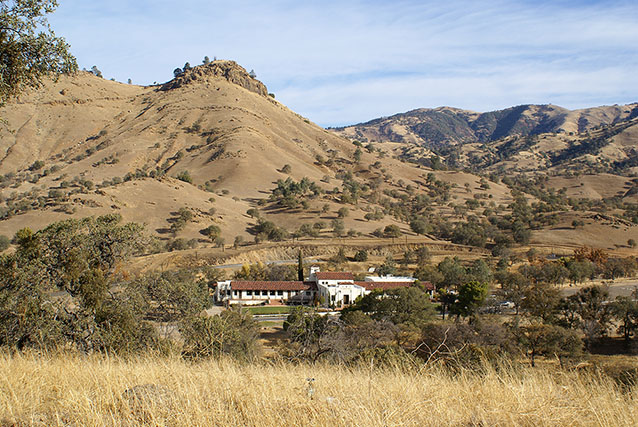
The Hispanic Access Foundation, a nonprofit that promotes and provides resources to boost Latino civic engagement, has identified 12 parks, monuments, and wildlife refuges connected to Latino heritage that should be prioritized for protection next year.
Among the Latino heritage sites is the Cesar E. Chavez National Monument, which is proposed to be expanded to make it part of the Cesar Chavez and Farmworker Movement National Historical Park. The proposed new park would include the existing Chavez Monument in Keene, California, the Forty Acres in Delano, California, and the Santa Rita Center in Phoenix, Arizona. These areas are part of the farmworker movement that led to the formation of the United Farm Workers.
According to the Hispanic Access Foundation report, less than a quarter of national parks primarily document historically underrepresented communities, and less than 8% of historical landmarks represent Latino stories.
One of these parks is the San Diego Friendship Park, located on the U.S.-Mexican border. It has served as a gathering area for cross-border families and the public to enjoy the coastal zone. However, it is at risk because of a proposed border wall, threatening wildlife and inhibiting access to other state parks and national reserves.
The Chumash Sanctuary in San Luis Obispo is known to help preserve unique coastal ecosystems and thousands of years of Indigenous cultural heritage. By preserving the sanctuary, the threat of offshore oil expansion would cease, and it would provide funding for marine research.
In Texas, a new binational park along the Rio Grande would cover more than 6 miles of land to help restore the river’s ecosystem, provide outdoor recreational opportunities, and celebrate the heritage of “los dos Laredos,” referring to two Latino cities—Laredo, Texas, and its sister city, Nuevo Laredo in Mexico.
This region of southeast Texas is known as the Nature Gap hot spot because nature is being destroyed, depriving low-income communities “of the benefits that nearby nature brings.” In the Castner Range area in El Paso, Texas, 9 out of 10 Latinos are nature-deprived and lack outdoor recreation areas and activities. Creating a Castner Range National Monument would help protect a landscape with thousands of years of Indigenous and Mexican history.
“For these reasons, in the new year Hispanic Access Foundation is asking President Biden and Congress to designate and protect new parks, waterways, and coastal areas throughout the U.S. that will serve Latino and other disinvested communities,” Shanna Edberg, director of conservation at Hispanic Access Foundation, said in a statement.

Recent Comments